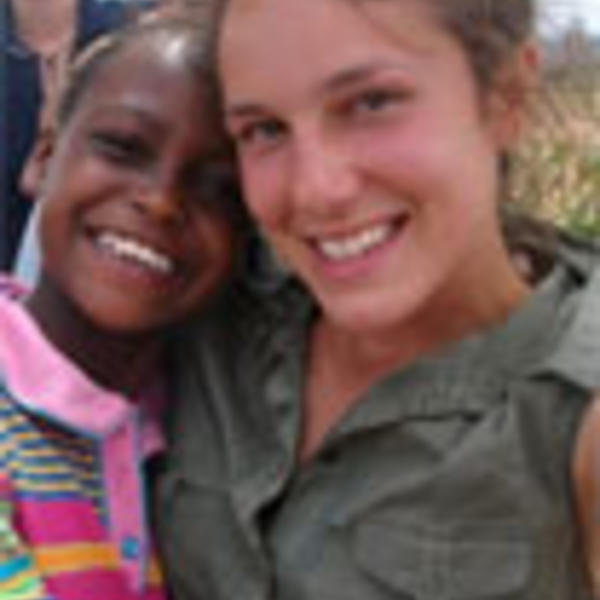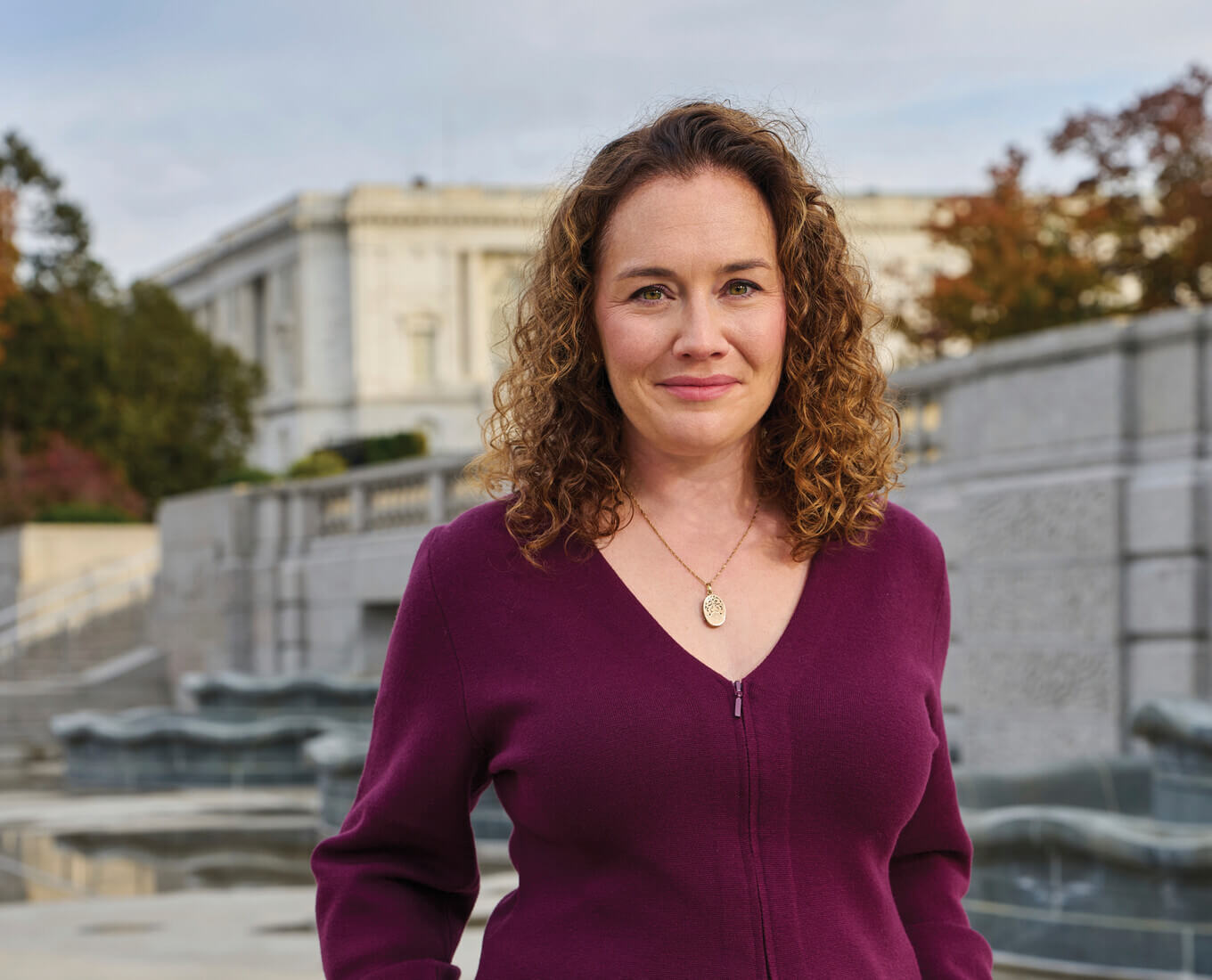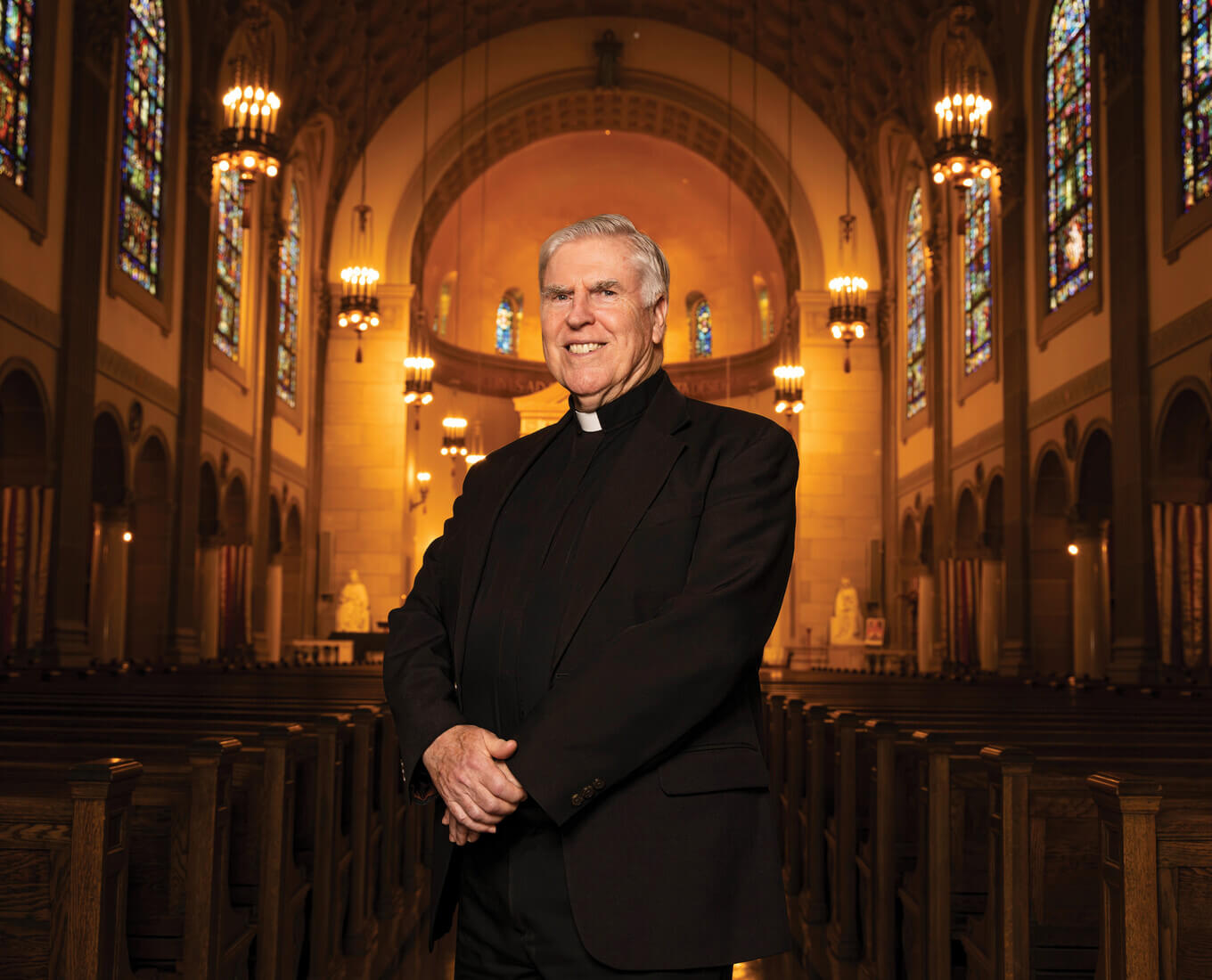This summer, a dozen Holy Cross students spent a month in Kenya as part of the College’s newest international study program that integrated classroom experiences with community internships — a combination of theory and practice learning that is helping set a new standard in study abroad programs emphasizing social justice.
“Kenya: Development, Peace and Social Justice” was a transformative experience for students, says Judith Chubb, W. Arthur Garrity, Sr. Professor in Human Nature, Ethics and Society and professor of political science. Chubb spent the last few years developing the program, and accompanied the students to Kenya along with Margaret A. Post, director of the Donelan Office of Community-Based Learning.
The program consisted of three components:
• Kiswahili language study
• An interdisciplinary course composed of a series of lectures by local experts on the challenges of peace, development and social justice in East Africa
• Community service internships in Kibera, the largest slum in sub-Saharan Africa
Students spent weekdays in Nairobi, the capital of Kenya, attending classes in the morning and participating in internships in the afternoon. The program was offered in partnership with the Catholic University of Eastern Africa and its Jesuit affiliate, Hekima College. The weekends were reserved for excursions into rural areas to experience the cultural and socio-economic diversity of Kenya. Students were housed at Hekima’s Institute for Peace Studies and International Relations, located within short walking distance of the internship sites.
“The combination of rigorous academic study with grassroots community service, unique among the College’s study abroad programs, epitomizes the mission of Holy Cross to promote global citizenship and social justice with special emphasis on the preferential option for the poor,” says Chubb. “I think all of the students were profoundly challenged — intellectually, emotionally, and spiritually by the experience,” says Chubb. “They were forced to question their preconceived notions about poverty in the developing world, the role of the West in promoting development, and how to translate the Jesuit mission of the College into their own lives and future career goals. They have begun a long journey of personal transformation.”
That seems to be the case for Casey O’Keefe ’10, a psychology major with a concentration in Peace and Conflict Studies from Weymouth, who discovered how little the world knows about Africa.
“I learned that everything we think we know as Americans, Westerners, and people who are not from Africa or Kenya, about how to help other people around the world is completely and entirely wrong,” she says. “Pouring money into developing countries as a form of aid hasn’t worked in the last 50-plus years and it won’t work anytime soon. If we want to help we need to either let African people find their own solutions — because all too often we cause more problems than anything — or we need to get more creative. Poverty has become a business and every dollar that is sent is fueling it.”
O’Keefe says she really got to experience life in Kenya through her interactions with local residents. As part of her internship, she taught second, fourth, and seventh grade at St. Secilia’s Primary School in Kibera. “The kids always stood and sang a song to welcome me when I entered the room,” she says. “Though it made me a little uncomfortable after the first few times, it was very sweet and reflective of the broader cultural hospitality toward visitors.”
She continues: “While I taught them vocabulary words in English, they would teach them to me in Kiswahili which was a really cool experience. I learned the most outside of the structured classes, just chatting with the children and the teachers. I felt it was important to be careful to be honest about my views, but also be sensitive about the ways in which those views are shaped by my experience in my own culture — to offer a sort of pros and cons list for both American and Kenyan culture in a balanced way, in hopes that individuals I encountered could help me to learn as much (or more) about their culture and my own as I hoped to teach.”
Claire Luke ’10, a philosophy major from Delmar, N.Y., says her time in Kenya was enriched by the many experts who visited with the group and shared their knowledge and insight.
“Our lectures included environmental issues, tribal and social history, women and gender issues, British colonialism, the independence movement, post-independence government and current government corruption, and each speaker we had specialized in one or more of these areas. The lectures on the role of women in different Kenyan communities were fascinating,” she says.
For Piero Iberti, an English major with concentrations in Peace and Conflict Studies and creative writing from New York City, it was a lecture on the 2008 post-election violence in Kenya, delivered by Rev. Ignatius Ikunza, S.J., director of the Jesuit Hakimani (Justice and Peace) Centre, that had the most impact.
“Fr. Ikunza addressed why the elections were unfair and denied citizens a voice. He also discussed the causes of the violence itself and the aftermath and consequent effects. Maybe it was the timing of the lecture, being two weeks into the program or perhaps it was the explicit material we were dealing with, such as murder, rape and extreme acts of violence, but it consumed me. I realized that events like this may happen again if nothing is done to adjust the political system in Kenya,” he says.
The community-based experiences helped draw students even closer to these realities. “Through theory and practice we understand the world,” says Post, who helped guide students through the internships. “It is both the engagement in the classroom and in the local community that makes programs like this work so well.
“For instance, building relationships with Kenyans who live with HIV/AIDS on a daily basis gives students a new perspective on the region rather than just reading about it in books. Students can ask themselves ‘Do the statistics and theory reflect what I’m learning in the community?’ and vice versa. Whether you are in a country like Kenya or right here in Worcester, understanding firsthand the cultural, political, and socio-economic diversity of a place is critical to our students’ learning — and to their development as global citizens.”
Says Iberti: “Coming into the trip, not knowing how and if I would be able to make any difference in my time within Kibera, the people at my internship site, Carolina for Kibera Youth Sports Association, and the organization itself provided me a sense of purpose, however small, that was necessary for me to get past some of the frustrations I was having as a Westerner struggling to find my place in a foreign land surrounded by a severe economic divide.”
Pictured: Claire Luke ’10 interacts with a child in Kenya. She was one of 12 Holy Cross students who went on a monthlong study abroad trip to the country this summer.
Related Information:
• Study Abroad Program
• Donelan Office of Community-Based Learning
New Summer Study Abroad Program in Kenya Is ‘Transformative’ Experience for Holy Cross Students

Innovative program integrates theory with practice to promote global citizenship
Read Time
5 Minutes

